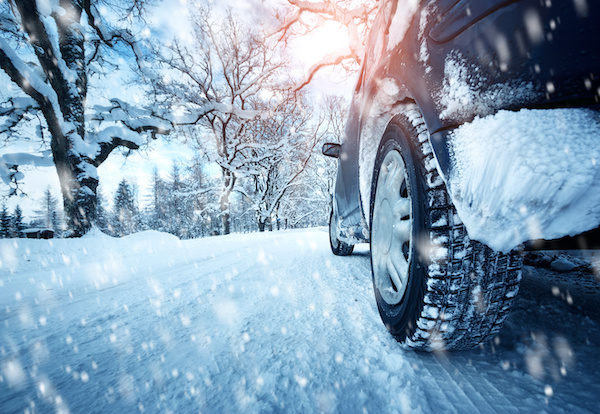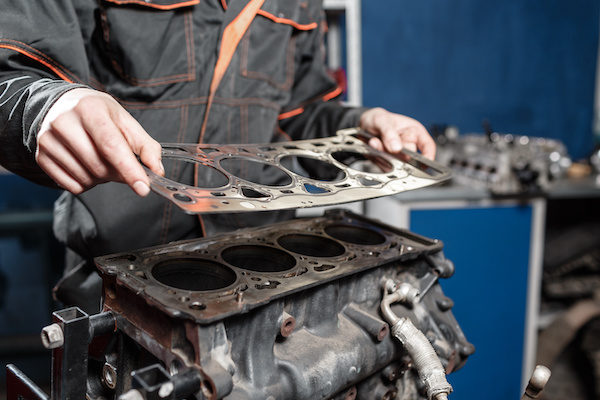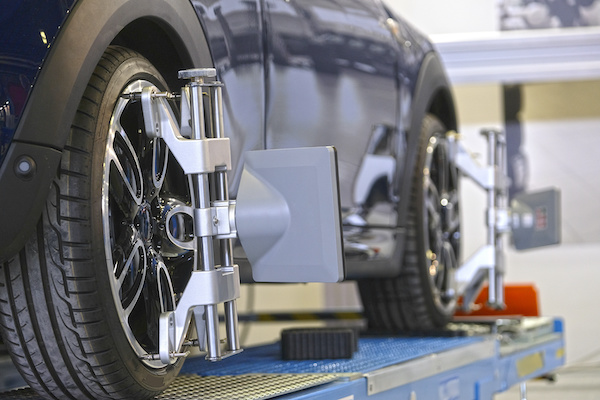Posted on 12/22/2021

Winter tires are a widely considered option if you live in an area that receives a ton of snow during the winter months. Since it does require spending money on a new set of tires that you only use a few months of the year, you may be hesitant to make the leap. Let’s look at the benefits of winter tires and how useful they are during the winter months. Quality of the Rubber At temperatures of 7 degrees Celsius or below, the rubber in all-season and summertime tires begins to harden, significantly limiting its ability to grip the road securely. Winter tires are designed to give flexibility even in sub-zero temperatures as low as -30 degrees Celsius. Extraordinary Traction Winter tires have deeper and more widespread siping, or narrow slits cut horizontally across the surface, to provide greater movement and "bite" into ice and any snow that may be adhering to the road. A more abrasive tread pattern also decreases the possibility of ... read more
Posted on 11/29/2021
.jpeg)
We thought it would be fun to go over and debunk some common car myths. They might surprise you! Myth #1 - Premium gas is better than regular gas Unless your vehicle manufacturer requires explicitly premium gas, you don't need to get it as it won't offer you any additional benefits. It will have no impact on your vehicle performance or your engine's lifespan. Myth #2 - You need to warm up your car in the winter Thanks to improvements to modern oils and engines, newer cars don't need to be warmed up before you start operating your vehicle. While it's nice to get into a warm car on a brisk morning, it's not necessary and wastes gasoline. Myth #3 - Larger cars are safer It's easy to think that a bigger, heavier vehicle would be able to handle a car crash better than a small car. A small car can be considered less safe because of its smaller size and less weight. However, this is not the case in the 21st century, where smaller cars are equipped with the la ... read more
Posted on 10/27/2021

Keeping an emergency kit in your car at all times can help you in times of need. And it's imperative you have one of these for the upcoming holidays, as most of us will be on the road traveling to see our loved ones. On the off chance that your car does break down, you'll be relieved to have these items and tools to ease the stress. The essential supplies that we've outlined below will have you feeling more prepared, keep you and your loved ones safe, and potentially save a life. Here is a list that we've compiled for you to organize and pack for your ultimate emergency travel kit: Flashlight Batteries for the Flashlight Compass Jumper Cables Jack Portable Power Bank First Aid Kit Tire Pressure Gauge Air Compressor Bungee Cords Screwdrivers Multi-tool Heavy-Duty Gloves Cable Ties Tape Reflective Triangle or Road Flares Blanket Non-Perishable Food/Snacks Water Fall/Winter Appropriate Items (ice scraper, umbrella, hand warmers, socks, rain jacket, coat ... read more
Posted on 9/28/2021

A head gasket is a crucial part of your engine, and you can find it along the cylinder head and engine block. The head gasket is in charge of blocking engine fluids from getting leaked into the cylinders. In a nutshell, the engine head gasket is designed to keep fluids away from each other. Due to its location under the hood, a head gasket faces extreme temperatures day in and day out, making it susceptible to leaks. There are particular signs and symptoms to look for if you suspect a blown head gasket which eventually leads to a gasket leak. Besides an apparent leak, you can also investigate your exhaust fumes to give you any hints about your head gaskets. If you see a blue-ish or light gray exhaust smoke after starting your car, they may have a leaky head gasket. Smoke is never a good sign for your vehicle, so you need to check to see if your engine is on the brink of overheating. You may also find bubbling in your radiator. Another sign to look for is d ... read more
Posted on 8/23/2021

When your car is out of alignment, it may become difficult to control. Your safety — and that of your passengers — can also be a concern. Hitting a pothole, curb, or even a bad bump, can cause your vehicle to become misaligned. Accumulating high mileage, being in an accident, or not keeping your tires balanced properly can also cause alignment issues. 1. Vehicle pulls to the left or right You notice your vehicle is pulling towards the left or right when you are driving straight ahead on the road. Having difficulty in keeping your car between the lines of your driving lane due to it pulling the left or to the right may be the result of an issue with your car's alignment. You may experience anything from a slight tug to a hard jerk. Occasionally, the trouble is found in tires being under-inflated or of the wrong size. 2. Uneven or rapid tire wear You may notice that your tires seem to be wearing unevenly. They can also wear out more rapidly than normal ... read more